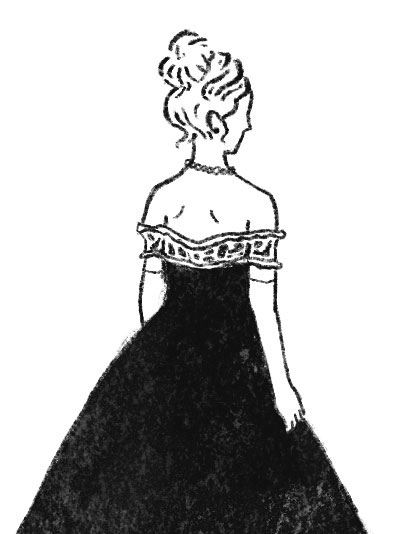Although I have spent much of my working life reviewing fiction, interviewing authors, and giving talks to book clubs, there are embarrassing gaps in my reading history. Forget Moby-Dick, Ulysses, or Infinite Jest. There was a time when the list included Anna Karenina.
Somehow, I had never been forced to study Count Leo Tolstoy’s masterpiece, and because Anna Karenina was too weighty to fit into a satchel, and too significant to join the lighter reading by my bedside, the novel from 1878 kept falling through the literary cracks. Then, twenty years ago, I won a journalism fellowship at Massey College in the University of Toronto. Imagine: eight months away from the newsroom while I traded daily deadlines for a more relaxed curriculum of my choosing — and on a stipend.
When a scheduling conflict meant I had a hole in my program, I saw an opportunity to catch up finally with Anna Karenina. I vaguely knew the instructor, Donna Orwin, a Tolstoy specialist in the Slavic studies department, because our sons had gone to the same high school. “Why are you interested in Tolstoy?” she asked. I blurted out the truth, and she looked at me quizzically. “I wonder what an older woman would think about Anna,” she said after a pause and warned me that she expected me to complete all the assignments.

Nicole Iu
As I gulped down the novel, I realized what Orwin meant. Anna is a beautiful aristocratic woman, married to a gloomy government official two decades her senior and the mother of an eight-year-old boy. She falls in love with Vronsky, a debonair cavalry officer, leaves her marriage, loses custody of her beloved son, and is ostracized by society. Had I encountered Anna when I was a dreamy teenager, I might have swooned in response to her reckless passion.
Rather than reading Anna Karenina as merely a tragic romance, I understood it as a treatise on women’s subordination, first under their fathers and then under their husbands, in the rapidly modernizing Russia of the late nineteenth century. They bear children and run households, they go to the theatre and attend balls, but they have few intellectual ambitions — and even less political or social clout.
Dolly, the mother of several children, leads an often miserable and precarious life with Oblonsky, her husband and Anna’s older brother, a socially acceptable womanizer and spendthrift. She roused my sympathy, whereas earlier I might have railed against her impotence. Kitty, Dolly’s younger sister, is a self-indulgent debutante who rejects a marriage proposal from Levin, a landowning social reformer akin to Tolstoy, because she anticipates a better offer from Vronsky. That fantasy is dashed when he falls inalterably in love with Anna. Kitty will eventually come to her senses, marry Levin, her true love, and with him struggle to establish a semi-equitable relationship — in the country, away from the artificiality of Moscow and St. Petersburg.
After Anna Karenina, we made our way through War and Peace and The Death of Ivan Ilyich, which continues to inform my writing on how we approach death in the age of MAID, and we took up many of Tolstoy’s short stories that reflect on his time as a young soldier fighting in the Caucasus and Crimea. That experience helped turn him into a pacifist.
But perhaps because I am a journalist rather than a literature scholar, I’ve kept coming back to Anna and a question raised so long ago in that course on Tolstoy: What is she reading on her train ride from her passionate encounter with Vronsky in Moscow to return to her dreary husband in St. Petersburg? Not Gustave Flaubert’s Madame Bovary, about another woman whose passions lead to death, because Tolstoy specifically states it’s an English novel. Tolstoy admired both Anthony Trollope and Charles Dickens, so determining which author and which book has become something of a parlour game. But as Isaiah Berlin pointed out, Russian and English writers knew and influenced each other’s work, passing ideas and themes back and forth like a boomerang. So maybe it doesn’t matter. Besides, Anna’s not really identifying with the story. As Tolstoy tells us, she “understood what she read, but the reading, that is, the necessity of entering into the lives of other people, became intolerable to her. She had too keen a desire to live herself.” By refusing to pin Anna down like a butterfly on a board, Tolstoy turns her into an elusive character for generations of readers to imagine and reimagine, as they themselves live their lives.
Sandra Martin is a writer and journalist living in Toronto.

